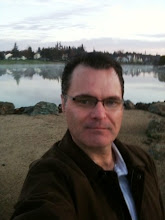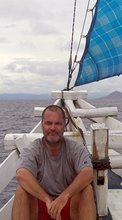Doctor H. Arief Rachman – part two
By ANDREW GREENE
Coming into being just a few years before
The first was in 1966 when he fought against communism because, he says, “Our philosophy says to believe in God, while the communists claimed to be atheists. For me it wasn’t political. I just went against what I thought was wrong. All the fighters who went against communism were imprisoned.”
A dozen years later, the man who spends his free time helping drug abuse victims was locked up a second time while he was a dean of students. He explains, “All the students went against the government due to its corruption and instead of the students being caught, the Dean of Students was caught. I was in for eight months without ever being charged.”
With his forty plus years in classrooms, schools, and universities, Rachman has witnessed the development of education in
Despite this sluggish pace of growth, the heart of the man remains rose colored and he says, “On the micro side we are OK, with many good universities flourishing along good high schools and international schools.”
Rachman was just a teen of 16 when he first experienced the joys of a multicultural classroom after he was accepted into the American Field Service foreign-student exchange program in 1959. He was enrolled in a small high school in
He recalls about that pivotal time, “In that high school we exercised cross-cultural understanding, active learning and discovery learning. I saw teachers as friends. It was then, that I began to think in the back of my mind, I’d like to go into that field and help students.”
Now, Rachman envisages a land where schools are genuine societal reflections. He says of the late 1980’s, when he was a member of the team that established
“We should have,” he explains, “Muslims, Christians, Hindus and more, all in good proportions. Additionally, we should not only have clever students, but also average and slow learners. With that blend, we’ll have a healthier, intellectual society.”
“Fast learners understand that life is a learning process in which we all live together with people who are not on the same track, different races, and religions. The good schools have a mixture of fast and slow learners that help each other. Multiculturalism should be emphasized.”
In keeping with his assimilation goal, Rachman’s vision as an educator has always been to develop well-rounded people. He remembers, “We aimed [at
“Those five potentials,” he adds, “we realized by using the school culture, the relationship between the parents, the teachers, and the students. We became a strong family.”
Unfortunately, Rachman feels this spirit and vision are lacking throughout much of the archipelago. “The state system of putting all the clever in the same schools is a mistake because not much learning takes place in those schools. It’s more like training.”
“I think we have a weak and narrow way of looking at success,” he adds. “Perhaps it goes to the love of materialism and status of the tangible, instead of the soft power of the intangible that education brings, like values, music, dance, culture, and religion.”
Elaborating, Rachman continues, “Even at the global level, Greenpeace and WWF have not been successful,” says the professor who also is the executive chairman for the National Commission for UNESCO. “In UNESCO we have a motto: ‘Learning to know. Learning to do. Learning to be. Learning to live together.’ I think now we [
He feels that second-language instruction in
Aware of English’s importance in today’s world, he says, “The role of English in
Rachman has long been propping open that window to the world for Indonesians. For ten years, more than 20 years ago, he was the presenter of a televised English language quiz show on TVRI. “I entertained and motivated people to like English,” he says. “Everyone watched me since there was only one channel at that time. I was lucky.”
This article was originally published in The


No comments:
Post a Comment